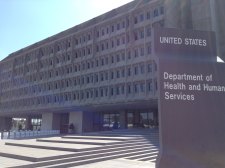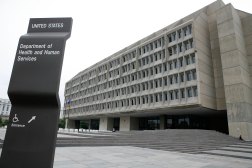HHS hopes to connect health networks with its Trusted Exchange Framework

The Office of the National Coordinator for Health Information Technology has a new framework to connect various disparate health care networks into an information-sharing web of electronic health records.
Officials from the Department of Health and Human Services office said Friday that the draft version of the Trusted Exchange Framework and Common Agreement will be open for public comment until Feb. 18, providing health care networks a window into a new on-ramp for connecting and sharing EHR information.
“What you’ll see in the document is two parts to it,” Genevieve Morris, ONC’s principal deputy national coordinator for health information technology, said in a conference call with reporters. “So there’s Part A, which is Principles for Trusted Exchange, which is a set of guardrails and general principles that I think health information networks should do to support interoperability.
“And Part B is a set of minimum required terms and conditions, which really gets into the legal language of how participation agreements should be constructed to ensure that health information networks can work with each other and talk to each other.”
ONC is charged with developing the framework as part of the 21st Century Cures Act, which became law in December 2016 and aims, in part, to streamline the interoperability and information sharing of electronic health records while still protecting proprietary information.
The framework sets a floor of conditions for networks to adhere to — including calling for common authentication processes and operational policies that the networks have to maintain — in addition to stated principles like standardization, transparency, security, and patient safety and access, among others.
Overseeing the framework from an enforcement perspective will be ONC’s Recognized Coordinating Entity, a body that officials said will be selected through a competitive bid process and will enter an agreement with the health information networks to administer the agreed-upon requirements.
“What we are looking for experience-wise are organizations in the industry who have built cooperation agreements before or participation agreements before,” Morris said. “[They] have experience with stakeholder engagement across a wide spectrum of stakeholders and understand some of the governance principles that need to be in place in order to operationalize the [framework].”
Once the comment period closes, ONC will evaluate the feedback before releasing a cooperative agreement that allows entities to competitively bid to be the RCE in the spring. ONC officials hope to engage with the RCE by August and to have the final framework published by the end of 2018.
“This is not really dissimilar from a lot of network governance,” said Don Rucker, national coordinator for health IT, likening the framework to voluntary agreements between cellphone providers.
“A lot of this is really general network governance and most of the folks have incentive to participate, so I would look at this as coordinating things rather than the assumption that there is a lot of policing required.”
The push for interoperability across the health care spectrum has been a focus of ONC that has spanned administrations and comes as many other entities look to address the issue, like the departments of Defense and Veterans Affairs and who’ve spent the past 20 years trying to seamlessly exchange electronic health records.
Officials could not comment on the RCE contract terms at the time of publication.






